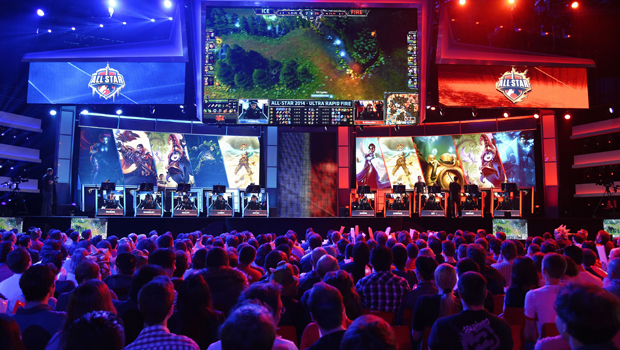E-Sports, or electronic sports, have rapidly emerged as a global phenomenon, captivating millions of fans and participants around the world. These competitive video gaming events have transformed gaming into a professional sport, creating a vibrant ecosystem of players, teams, tournaments, and enthusiastic communities. This article explores the exciting world of e-sports, delving into the competitions, career opportunities, and the tight-knit communities that have evolved around this rapidly growing industry.

1. Competitive E-Sports:
E-Sports competitions bring together highly skilled players from various genres, including multiplayer online battle arenas (MOBAs), first-person shooters (FPS), real-time strategy (RTS), and sports simulations. These tournaments feature professional teams or individual players competing for substantial prize pools and prestigious titles. Major e-sports events draw massive audiences both online and in-person, generating an electric atmosphere akin to traditional sports events.
2. Professional E-Sports Careers:
E-Sports has opened up a new avenue for professional careers in gaming. Talented players can pursue e-sports as a viable profession, joining established teams or forming their own. Professional gamers train rigorously, honing their skills, mastering game mechanics, and strategizing with their teammates. Beyond playing, there are opportunities for careers in e-sports as coaches, team managers, casters, analysts, content creators, and event organizers. The growth of e-sports has created a robust industry that supports and sustains these careers.
3. E-Sports Organizations and Leagues:
E-Sports organizations and leagues play a vital role in nurturing talent and organizing competitions. They provide a platform for players to showcase their skills, sign contracts, receive salaries, and compete at the highest level. Prominent e-sports leagues, such as the League of Legends Championship Series (LCS), Overwatch League (OWL), and Dota 2’s The International, attract a massive following and have become a pinnacle of professional e-sports.
4. E-Sports Community and Fanbase:
The e-sports community is a passionate and engaged fanbase that supports and celebrates the competitive gaming scene. Fans gather both online and offline to cheer for their favorite teams and players, discuss strategies, share game highlights, and organize community events. Online streaming platforms, such as Twitch and YouTube Gaming, have played a significant role in connecting fans with live e-sports events and fostering an interactive community experience.
5. Sponsorships and Investment:
E-Sports has attracted the attention of major sponsors, brands, and investors who recognize the growing potential and reach of the industry. Sponsorships and partnerships enable e-sports teams and events to secure financial support, providing resources for player salaries, infrastructure development, and prize pools. Additionally, venture capitalists and traditional sports organizations have started investing in e-sports, further fueling its growth and professionalization.
6. E-Sports and Mainstream Recognition:
E-Sports has transitioned from niche entertainment to mainstream recognition. The industry has gained acknowledgment from traditional sports organizations, media outlets, and even Olympic committees. E-sports events are now broadcasted on major television networks and attract sponsorship deals with globally recognized brands. The inclusion of e-sports in major sporting events, such as the Asian Games and X Games, demonstrates its growing legitimacy and global appeal.
Conclusion:
E-Sports has become a thriving industry that blends competitive gaming, professional careers, and passionate communities. With its intense competitions, lucrative career opportunities, dedicated organizations and leagues, enthusiastic fanbase, sponsorships, and increasing mainstream recognition, e-sports has solidified its position as a significant force in the entertainment landscape. As e-sports continues to evolve, it will undoubtedly shape the future of competitive gaming, offering exciting prospects for players,
fans, and industry professionals alike.